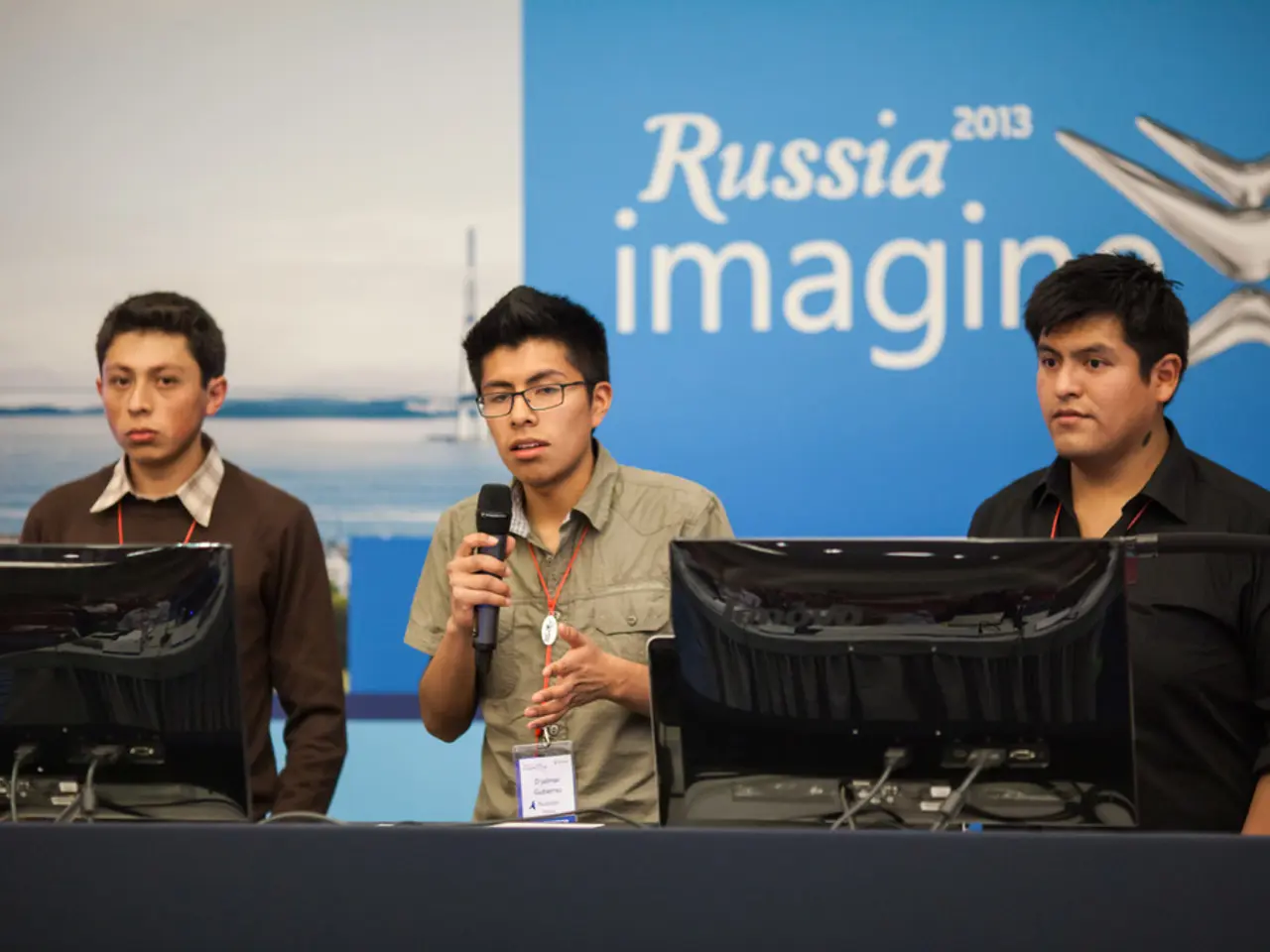Smarts apps Telegram and WhatsApp persistently experiencing phone issues - multiple potential reasons
In a surprising turn of events, Russian users are facing issues with video and voice calls on Telegram and WhatsApp. Roskomnadzor, the Russian state communications watchdog, has decided to partially restrict these call functions as part of an anti-fraud and national security measure [1][3].
The agency claims that voice and video calls on these foreign messaging platforms have become the main channels for scams, extortion, and recruitment for terrorism and sabotage. This restriction specifically targets calls but does not affect other app functions like messaging [1][3].
The Russian government justifies these partial restrictions as necessary to counter criminal activity and to push the companies to comply with Russian laws, including cooperating with authorities in fraud, sabotage, and terrorism cases. Officials indicated the bans could be lifted if WhatsApp and Telegram open local offices and share data with Russian authorities. However, both companies criticize these actions, emphasizing their commitment to secure, encrypted communications that protect user privacy [1][2][3].
This measure fits into a wider Russian governmental strategy to reduce reliance on foreign platforms and move users towards domestic alternatives, such as the government-backed "Max" super app, designed similarly to China's WeChat. This is part of a broader "digital sovereignty" push by the Kremlin to increase control over internet communication and information [2][3].
The lack of comments from mobile operators and Roskomnadzor on the situation suggests a certain level of sensitivity surrounding the issue. Roskomnadzor did confirm restrictions but framed them narrowly and avoided extensive public debate. Mobile operators have not publicly commented, possibly to avoid political controversy or because the restrictions are handled primarily at the federal regulatory level. Roskomnadzor’s statements focus on the anti-fraud rationale and partial call blocks rather than broader transparency [1][4].
Anton Tkachev, First Deputy Chairman of the State Duma Committee on Information Policy and a deputy from the "New People" party, believes that people will look for ways to bypass the blocks. He also questioned the commercial benefit of restricting the use of Russian messengers for calls and suggested that the motivation for mobile operators to stop people from calling through foreign messengers is unclear [1][4].
The issues with messengers' services have caused significant frustration among Russian users, especially the elderly and remote workers, for whom these calls were vital to communication within and outside Russia [4]. Tkachev noted that a large number of freelancers and people who work on the internet and are connected to international business chains will use VPN.
There is speculation that the story of blocking messengers' calls may have a more fundamental origin. Some believe it could be part of a larger strategy to increase control over internet communication and information in Russia. As the situation unfolds, users and policymakers alike are closely watching for developments and potential changes in the digital landscape.
| Aspect | Explanation | |-----------------------|---------------------------------------------------------------------------------------------------| | Reason for Call Block | To combat scams, fraud, extortion, terrorism recruitment allegedly occurring over WhatsApp/Telegram calls [1][3] | | Government Goal | Push users away from foreign platforms, increase control via "digital sovereignty" and domestic apps like Max [2][3] | | Companies’ Response | Both WhatsApp and Telegram emphasize encryption and user privacy, criticize restrictions [2] | | Operator & Regulator Comment | Roskomnadzor confirmed restrictions but gave limited details; mobile operators remained silent, likely due to political sensitivity [1][4] |
The Russian state communications watchdog, Roskomnadzor, has implemented a partial restriction on voice and video call functions on foreign messaging platforms like Telegram and WhatsApp, citing anti-fraud and national security concerns [1][3]. This move is part of a larger strategy by the Russian government to increase control over internet communication and information, shifting users towards domestic alternatives [2][3]. Despite the restrictions, there are speculations that users may find ways to bypass the blocks, particularly freelancers and internet workers [4].




